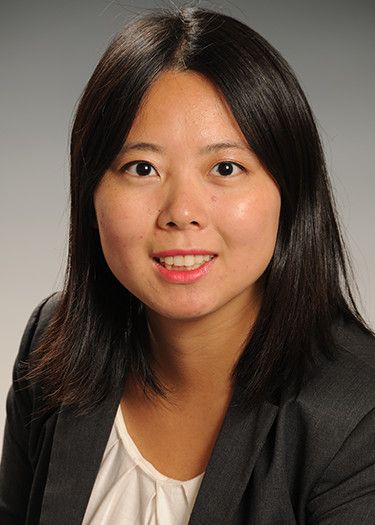User login
Editor’s note: The Society of Hospital Medicine’s (SHM’s) Physician in Training Committee launched a scholarship program in 2015 for medical students to help transform health care and revolutionize patient care. The program has been expanded for the 2017-18 year, offering two options for students to receive funding and engage in scholarly work during their first, second and third years of medical school. As a part of the longitudinal (18-month) program, recipients are required to write about their experience on a monthly basis.
Last month I was able to conduct five interviews with key stakeholders, generate the patient flow diagram, define the problems, and propose potential interventions. The project is on time for the allotted time frame.
Interviewees include physicians and managers from infectious disease, hospital medicine, psychiatry and care management. They represent the services which admitted IVDU patients have contacts with: inpatient primary team, inpatient ID consult time, BIT (behavior intervention team), and OPAT (Outpatient Parenteral Antibiotic Therapy) program. I asked each interviewee about the specific challenges of care delivery during the inpatient, discharge, and outpatient follow up process.
It is not surprising that most would agree that discharge was the most difficult part. The ID service showed me data that those with IVDU history may have a one-time longer length of stay compared to the average. The social-psychological issues, including medication compliance, insurance coverage, and mental health comorbidities, are the most commonly mentioned factor for delayed discharge.
When asked about a suggestion for a particular area for quality improvement, different services came up with different recommendations. ID suggested looking at availability of community resources and improving patients’ access to them. Psychiatry has been trying to screen all admitted patients for substance use disorders, with an intention of early intervention. Hospital medicine and care management were contemplating the potential means for a repatriation program, i.e., making the transferring acute care facility agree to receive patients back once tertiary care was complete. Given that Dartmouth-Hitchcock Medical Center has a few satellite community hospitals, it would make sense to establish some institutional protocol to optimize patient flow within the system.
My next step would be to pursue one or two areas for improvement from the above options. I will work with the relevant stakeholders to define the problems and come up with a plan. I am excited about moving forward to the next phase.
My research approach has changed slightly during the process. Initially I was narrowly focused on the desired outcomes of decreasing length of stay and readmission rate. Dr. Huntington challenged me to understand the whole process thoroughly as well as to spend time on defining the problems before diving into interventions. I enjoyed my role of being a learner, researcher, and consultant in this project. I gained a very in-depth perspective on how each service operates and coordinates. Also, it is both challenging and fun to coming up with an improvement plan. In my future residency and physician career, I am definitely going to pursue more care improvement initiatives.
Yun Li is an MD/MBA student attending Geisel School of Medicine and Tuck School of Business at Dartmouth. She obtained her Bachelor of Arts degree from Hanover College double-majoring in Economics and Biological Chemistry. Ms. Li participated in research in injury epidemiology and genetics, and has conducted studies on traditional Tibetan medicine, rural health, health NGOs, and digital health. Her career interest is practicing hospital medicine and geriatrics as a clinician/administrator, either in the US or China. Ms. Li is a student member of the Society of Hospital Medicine.
Editor’s note: The Society of Hospital Medicine’s (SHM’s) Physician in Training Committee launched a scholarship program in 2015 for medical students to help transform health care and revolutionize patient care. The program has been expanded for the 2017-18 year, offering two options for students to receive funding and engage in scholarly work during their first, second and third years of medical school. As a part of the longitudinal (18-month) program, recipients are required to write about their experience on a monthly basis.
Last month I was able to conduct five interviews with key stakeholders, generate the patient flow diagram, define the problems, and propose potential interventions. The project is on time for the allotted time frame.
Interviewees include physicians and managers from infectious disease, hospital medicine, psychiatry and care management. They represent the services which admitted IVDU patients have contacts with: inpatient primary team, inpatient ID consult time, BIT (behavior intervention team), and OPAT (Outpatient Parenteral Antibiotic Therapy) program. I asked each interviewee about the specific challenges of care delivery during the inpatient, discharge, and outpatient follow up process.
It is not surprising that most would agree that discharge was the most difficult part. The ID service showed me data that those with IVDU history may have a one-time longer length of stay compared to the average. The social-psychological issues, including medication compliance, insurance coverage, and mental health comorbidities, are the most commonly mentioned factor for delayed discharge.
When asked about a suggestion for a particular area for quality improvement, different services came up with different recommendations. ID suggested looking at availability of community resources and improving patients’ access to them. Psychiatry has been trying to screen all admitted patients for substance use disorders, with an intention of early intervention. Hospital medicine and care management were contemplating the potential means for a repatriation program, i.e., making the transferring acute care facility agree to receive patients back once tertiary care was complete. Given that Dartmouth-Hitchcock Medical Center has a few satellite community hospitals, it would make sense to establish some institutional protocol to optimize patient flow within the system.
My next step would be to pursue one or two areas for improvement from the above options. I will work with the relevant stakeholders to define the problems and come up with a plan. I am excited about moving forward to the next phase.
My research approach has changed slightly during the process. Initially I was narrowly focused on the desired outcomes of decreasing length of stay and readmission rate. Dr. Huntington challenged me to understand the whole process thoroughly as well as to spend time on defining the problems before diving into interventions. I enjoyed my role of being a learner, researcher, and consultant in this project. I gained a very in-depth perspective on how each service operates and coordinates. Also, it is both challenging and fun to coming up with an improvement plan. In my future residency and physician career, I am definitely going to pursue more care improvement initiatives.
Yun Li is an MD/MBA student attending Geisel School of Medicine and Tuck School of Business at Dartmouth. She obtained her Bachelor of Arts degree from Hanover College double-majoring in Economics and Biological Chemistry. Ms. Li participated in research in injury epidemiology and genetics, and has conducted studies on traditional Tibetan medicine, rural health, health NGOs, and digital health. Her career interest is practicing hospital medicine and geriatrics as a clinician/administrator, either in the US or China. Ms. Li is a student member of the Society of Hospital Medicine.
Editor’s note: The Society of Hospital Medicine’s (SHM’s) Physician in Training Committee launched a scholarship program in 2015 for medical students to help transform health care and revolutionize patient care. The program has been expanded for the 2017-18 year, offering two options for students to receive funding and engage in scholarly work during their first, second and third years of medical school. As a part of the longitudinal (18-month) program, recipients are required to write about their experience on a monthly basis.
Last month I was able to conduct five interviews with key stakeholders, generate the patient flow diagram, define the problems, and propose potential interventions. The project is on time for the allotted time frame.
Interviewees include physicians and managers from infectious disease, hospital medicine, psychiatry and care management. They represent the services which admitted IVDU patients have contacts with: inpatient primary team, inpatient ID consult time, BIT (behavior intervention team), and OPAT (Outpatient Parenteral Antibiotic Therapy) program. I asked each interviewee about the specific challenges of care delivery during the inpatient, discharge, and outpatient follow up process.
It is not surprising that most would agree that discharge was the most difficult part. The ID service showed me data that those with IVDU history may have a one-time longer length of stay compared to the average. The social-psychological issues, including medication compliance, insurance coverage, and mental health comorbidities, are the most commonly mentioned factor for delayed discharge.
When asked about a suggestion for a particular area for quality improvement, different services came up with different recommendations. ID suggested looking at availability of community resources and improving patients’ access to them. Psychiatry has been trying to screen all admitted patients for substance use disorders, with an intention of early intervention. Hospital medicine and care management were contemplating the potential means for a repatriation program, i.e., making the transferring acute care facility agree to receive patients back once tertiary care was complete. Given that Dartmouth-Hitchcock Medical Center has a few satellite community hospitals, it would make sense to establish some institutional protocol to optimize patient flow within the system.
My next step would be to pursue one or two areas for improvement from the above options. I will work with the relevant stakeholders to define the problems and come up with a plan. I am excited about moving forward to the next phase.
My research approach has changed slightly during the process. Initially I was narrowly focused on the desired outcomes of decreasing length of stay and readmission rate. Dr. Huntington challenged me to understand the whole process thoroughly as well as to spend time on defining the problems before diving into interventions. I enjoyed my role of being a learner, researcher, and consultant in this project. I gained a very in-depth perspective on how each service operates and coordinates. Also, it is both challenging and fun to coming up with an improvement plan. In my future residency and physician career, I am definitely going to pursue more care improvement initiatives.
Yun Li is an MD/MBA student attending Geisel School of Medicine and Tuck School of Business at Dartmouth. She obtained her Bachelor of Arts degree from Hanover College double-majoring in Economics and Biological Chemistry. Ms. Li participated in research in injury epidemiology and genetics, and has conducted studies on traditional Tibetan medicine, rural health, health NGOs, and digital health. Her career interest is practicing hospital medicine and geriatrics as a clinician/administrator, either in the US or China. Ms. Li is a student member of the Society of Hospital Medicine.

